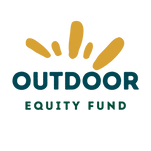About the Somali Bantu Community Association:
The Somali Bantu Community Association's mission is to provide vital transitional services, advocacy, and food production that empowers members of the refugee community to uphold cultural identity and economic well-being to thrive in their new life here in Maine. The central pillars of our work are: Liberation Farms, our Community Farming Program which provides access to land and resources where our farmers grow fresh, chemical-free, culturally relevant produce; our Community Center-based Community Advocacy work including assistance with childcare, housing, employment, legal migration and healthcare; and the Kasheekee Youth Program an intercultural, reciprocal, and intergenerational exchange of Bantu culture and traditional growing practices.
We are advised by an Executive Director, a Board of Directors, and a Farm Committee, all of whom are Somali Bantu. Thus, all decisions are self-determined by our community’s priorities. Liberation Farms is a 104 acre piece of land in Wabanaki Territory held as an agrarian commons where over 200 farmers grow food for their families and we host Kasheekee youth programs. This year we opened the SBCA Community Center in downtown Lewiston - an exciting gathering place for the Somali Bantu community.
Learn more about Somali Bantu Community Association from its leaders:
“Our Somali Bantu community has been moved from place to place since 1991, and hasn’t had access to our own land for over 20 years. Now we have Liberation Farms, which means now we have a home. Everyone is so excited to practice our culture of farming into the future.”
- Muhidin Libah, Executive Director
Community and healing at the farm

Liberation Farms is a safe, secure location for our community to gather to heal, exercise, be in nature, and celebrate as a community without outside interference or influence. Liberation Farms is located on 104 acres in Wales, ME, a 25 minute commute from Lewiston, ME, where the majority of our community members reside, which is housed on 104 acres.
At Liberation Farms, members of our community are allotted a plot of land to be able to grow food for families, exercise, and gain agricultural knowledge specific to farming in Maine. Youth participants in our Kashekee Youth program have their own designated garden beds that they care for on a weekly basis, with the guidance and assistance of community Elder farmers and SBCA farm staff members. Youth also harvest the food they grow, practice recipes in partnership with St. Mary’s Nutrition Center, and are able to take food home to share with their loved ones. Growing food and being in nature connects us to our sense of belonging in the world.
The many benefits of farming
The Somali Bantu people have needed a place to exercise in culturally appropriate ways that ease adaptation to the new lifestyle and diet here in the United States. Farming has always been the most natural way for our people to exercise and feel strong while growing fresh, healthy food for our families and extended networks. Liberation Farms provides a venue for culturally appropriate exercise, space to commune with nature without the gaze or influence of onlookers, and the opportunity to heal from trauma. Many of our community members have experienced land loss and atrocities associated with conflict in Somalia and from living in refugee camps. Liberation Farms is a place where Somali Bantu people can reconnect to the land, their agricultural roots, and process the harms they have experienced, while increasing food security for families living at or below the poverty level here in Maine.
Now that our community has found a home, our community has finally found a piece of land to steward collaboratively in the community, and to shape what land use looks like for us now, and into the future. Liberation Farms is a dream realized to create a place for our community to truly thrive, and to reflect and share the values of our community with our partners and neighbors. Connecting to the outdoors gives everyone a sense of ownership, and provides the ability to grow their own fruits and vegetables.




